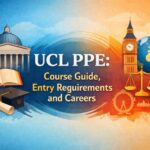Table of Contents:
- Why is Selecting Fitting Revision Techniques Important?
- How to Revise Effectively
- 7. Reading Your Notes or the Textbook
- 6. Making Colourful Revision Posters
- 5. Creating Revision Flashcards
- 4. Teaching the Subject to Friends
- 3. Studying with Others
- 2. Doing Past Papers
- 1. 1 to 1 Support from an Online Tutor
- Summary
Why is Selecting Fitting Revision Techniques Important?
Revision is the act of reinforcing and updating your knowledge using various methods, enhancing retention for future use. If you’re beginning your GCSE or A-level preparations and feeling overwhelmed, you’re not alone. Many students experience heightened stress during this time, struggling to concentrate on their studies amidst the vast content across different subjects. Today, we’ll rank the top seven revision techniques to help you study effectively, whether for GCSE maths or a standard English test, ensuring you make the most of your revision time.
How to Revise Effectively
- Start by making a study goals that shows what you’ll study each day. This helps you stay organized and not leave everything to the last minute.
- Find a quiet and clean place to study where you won’t be distracted. Having all your notes and books ready makes studying easier.
- Remember, studying a little bit over time is better than trying to learn everything at once. Use different ways to study.
- Take short breaks while studying to keep your mind fresh. Also, eating well, sleeping enough, and moving around a bit can help your brain work better.
- Believe in yourself and keep a positive attitude. If something isn’t working, it’s okay to try a different way to study.
Don’t forget, everyone is different, so if some of the lower-ranked methods have worked for you then don’t let us stop you… 🤔
7. Reading Your Notes or the Textbook
If your main revision method is grabbing your textbook and reading it cover to cover, then you need to rethink.
✏️ In 2013 Professor Dunlosky analysed hundreds of studies and found out that rereading notes is “low utility”.
Even though rereading a textbook is a go-to method for many students, it won’t help you remember anything. The same goes for reading your notes – just reading them through will not help them stick in your mind or help you pass your exams. If you are insistent on using passive recalling, then make sure you at least are rewriting or paraphrasing your notes at the same time, as writing something out by hand has been scientifically proven to help you learn more.
You can also use blurting alongside rereading your notes. Blurting is one of the revision techniques where you quickly read your textbook or notes, close them and write down everything you can remember. It helps you to understand where exactly you are struggling to focus on that area more. 📝
6. Making Colourful Revision Posters
Listen, we enjoy a colourful poster as much as the next person, but does a beautifully drawn poster actually help you learn? For some people, particularly visually stimulated learners, the answer is “yes!”. However, sometimes, it can be a bit of a time waster. Be mindful of how you’re making your poster – go for content over aesthetic.
The best way to use a poster to help you revise is to use a mind map. This will help you to link your ideas together and create connections in your mind that will make them easier to remember. Another tip is to make it a timed task! It’s easy to spend hours and hours perfecting your pretty poster, but really you should only aim to spend about 45 minutes to an hour learning a topic at a time. Anything over this time frame and your brain will get saturated and it will stop going in! Once the poster is finished, stick it somewhere where you can see it often to help you absorb the information effectively.
5. Creating Revision Flashcards
Flashcards can be a brilliantly effective way to revise if done properly. The main tip for revising with flashcards would be not to overload the flashcard with too much information. The idea of a flashcard is that it is a bite-size piece of information that is going to help you learn a specific fact or word. There are several different ways to revise with flashcards:
✅ Write a question on one side and the answer on the other. This helps you to test yourself, rather than rely on someone else to help you.
✅ Make a flashcard into a mini-poster depicting one fact or piece of content. However, the same warning goes here as above. Your flashcards should be effective, not beautiful. Try not to spend hours perfecting them, but instead focus on learning what goes on them.
Struggling to organise your study sessions? Check out our comprehensive guide on creating a revision timetable template. Learn how to structure your time effectively, access downloadable templates, and discover strategies to enhance your revision process. Stay on track and achieve your academic goals by following our expert tips.
Read more in our detailed guide: The Ultimate Guide to Creating a Revision Timetable Template.
4. Teaching the Subject to Friends

This one is our favourite revision techniques! Instead of trying to teach yourself content, grab a friend, family member or even pet and teach it to them instead! It has been scientifically proven that explaining something out loud to someone else helps you to understand and memorise it yourself. If you don’t have someone willing to learn from you, you could make a podcast or video and listen to it or watch it back. It can also be a great asset for future students who will take the same subject!
Not only that, studying with friends (if done properly 🤨) can be really great to raise your productivity, and confidence and improve grades in general!
✏️ Research shows that stress levels are lower when a friend is by your side during a stressful moment. The level of cortisol, the stress hormone lowers and self-worth gets higher.
✏️ There was research done in 2019 that showcased the importance of peer learning. School students that had no friends had lower grades than students who had even one friend to support them in one way or another.
✏️ Studies show that studying with others also develops soft skills like team-working which are essential in every career path.
3. Studying with Others
Studying with friends can be productive, but what if you find something interesting to talk about? 🤔
✏️ Noah, Year 12 says: “I’ve always struggled to revise with friends. We’d all get distracted by other things and never actually get anything done. And when I tried studying alone, it didn’t work out very well either. I’d procrastinate, scroll TikTok and get discouraged because I felt like no one was watching over me.
But then one day, I was introduced to homework clubs! It was like magic: I could study with peers who were all just as motivated as me, and they helped keep each other accountable for getting stuff done. It was like having a team of cheerleaders in your pocket!”
If you too struggle to find the motivation to revise alone, why not join an online study group? One of the most comfortable ones is on Edumentors – Virtual Study Club. There you can gather with other students and revise together. A tutor will also be present, but they won’t be asking questions. Some students may feel anxious about working in groups with a tutor, however, the tutor is there for you! They won’t ask you questions or test you unless you ask them to. It can make a huge difference to know that somebody else is watching you and making sure you aren’t slacking, and will probably stop you from going on your phone… 📱
2. Doing Past Papers
This is one of the most important and normally underrated methods there is! Content, themes and even sometimes questions get repeated. By doing every exam paper available to you, you have not only tested your exam technique and noticed any gaps in your knowledge, but you have also potentially help your future self by learning the answer to a question which may come up again. It’s an invaluable resource available to students for free on the exam board website, and really cannot be understated! You can also have someone who helps you explain the questions you got wrong!
1. 1 to 1 Support from an Online Tutor
If you don’t understand something, you can always go to forums, friends or your teachers for support. Nevertheless, there is no point in getting stressed trying to teach hard exam topics to yourself. It’s always better to find someone who is an expert in that subject. Bonus, if they have already taken an exam you are taking! They will help you perfect your exam revision techniques and give you tips and tricks. You can work with in-person tutors or online tutors. However, for someone who is preparing for several exams and needs to juggle multiple subjects, online tutors are the most comfortable. It’s convenient and easy to schedule!
Tutors can help you:
✅ Boost your knowledge.
✅ Increase confidence.
✅ Practice exam technique.
✅ Enhance your revision.
✅ Get emotional support throughout the learning process.
✅ Innovative revision techniques
You can read more about the benefits of online tutoring here.
Summary
So there you have it, the 7 top revision techniques from worst to best. All of these methods are valid and useful, so take some time before your mocks to try them out and see which are the best for you! Create a revision timetable and you are ready to go! Don’t forget your health during exams, though. Grades won’t do any good if you struggle with your mental well-being daily. Try out different brain foods and read more on how to improve your mental health during exam season.
You can share this information with your friends, show them how beneficial studying with them can be and maybe you’ll be able to start preparing together without getting distracted. 📚 This will help you to hold yourselves accountable and be as ready as you can for your exams!
If you feel overwhelmed and need the help of a tutor who has gone through the same exams as you, book a session now at Edumentors.
Good Luck!









